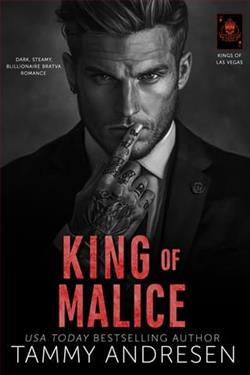Page 14 of Warrior Queen
We’d come allthis way for me to check Gildas was all right, so after my revelation to Merlin, I forced myself to go on, even though what I really wanted to do was head straight back home as a nervous wreck. But Arthur, for all his lack of interest in the boy, would be bound to ask us how we’d got on, so I had to have something to tell him. Besides which, I owed it to the poor child we’d consigned to a bunch of strange men. The thought of how incorrect this would have been in my old world wouldn’t leave me.
The abbey lay on the flat land beneath the slopes of the Tor, built within the footprint of the later stone-built version I’d known in the world I’d left behind. Greedy old Henry VIII had seen about its destruction in 1539, when he’d broken from Rome, destroying a line of religious houses stretching back well over a thousand years.
What I was looking at here might well not even have been the first incarnation of the abbey. Maybe many other wattle and daub buildings with thatched roofs had preceded this one, long before stone would take their place. According to legend, Joseph of Arimathea himself had founded the original abbey in the first century, and planted his staff on Wearyall Hill, from which the holy thorn tree had grown.
After the design of a Roman villa, these humble buildings surrounded a central, cobbled courtyard, with the little, thatched church facing the double-gated entrance. The remaining buildings held the accommodation for the monks, the storehouses and kitchen, and offices for the abbot, the prior, the sacrist, the treasurer, and whoever else needed one. I’d never been inside, only stood lost and afraid in the courtyard on the day I’d fallen back in time.
The memories of that day flooded back, as a monk– was it Brother Mark?– hurried to find the Abbot, who came quickly. After all, I was a queen now, so not to be kept waiting.
Abbot Jerome hadn’t changed at all. Tall, thin, with a long aquiline nose and the crown of bushy dark hair around his tonsure perhaps more liberally sprinkled with gray than the last time I’d seen him. But his eyes remained the same– heavy-lidded, intelligent, and kind.
“My Lady the Queen.” He made a small bow. After all, an abbot was a person of great importance and, as such, owed a little less deference to me than an ordinary man would. That he owed me deference at all felt odd and brought heat to my cheeks.
I held out my hand. “Abbot Jerome, I’m very pleased to see you again. In far better circumstances than when we last met.”
He’d had to intercede between Arthur and Melwas to secure my release when I’d been kidnapped, and prevent Melwas sending me back to my husband piece by piece– starting with my nose. For that, and for his kindness to me on the day I’d arrived here, I owed him a great debt.
He took my hand in his. As before, his palm felt rough, and his nails showed the dirt of hard work. This was a man who wasn’t afraid of laboring in the fields alongside his monks. This time, however, ink stains also showed on his long fingers.
He smiled. “You are most welcome here, my lady.” His eyes slid to Merlin. Did I detect a momentary flash of hostility there? Perhaps. After all, Merlin had once expressed his doubts about the Christian religion, so maybe the Abbot knew this. Whatever it was, he hid it swiftly. “My Lord Merlin, you too are most welcome.”
Merlin took his proffered hand. “My Lord Abbot.” The frostiness seemed to be on both sides. Merlin’s eyes had gone hard as pebbles.
Jerome’s calm gaze returned to me. “Perhaps some refreshment after your journey?”
“That would be lovely. Thank you.”
He led us through a door halfway down one side of the courtyard and into a square chamber. The wattle and daub walls had been washed a creamy white, with only a carved, dark-wood crucifix as decoration. A hefty table, scattered with scrolls, an ink pot and several pens, occupied much of the room, with a sizeable, high-backed wooden chair, not unlike a throne, behind it. Jerome gestured to two lesser seats set before the table and took the throne for himself.
I sat down, sensing hesitation in Merlin. After a moment, he took the second seat, leaned back and crossed his outstretched legs at the ankles. I wasn’t fooled– he was nowhere near as relaxed as he’d have had me and Jerome think. Did he feel uncomfortable in a house of God? My father, a non-believer, had said he felt a sizzle coming on whenever he had to go inside a church.
Folding my hands in my lap, I waited while Jerome rang a bell to summon a monk and order refreshments. When he’d poured us goblets of wine, he too sat back in his chair, his fingers steepled. “What is it I can do for you today, My Lady?”
“I’ve come to see your pupil, the boy, Gildas, whom I sent here in the spring.”
Was that a twinkle in Jerome’s eyes? “Ah,” he said. “I wondered if that might be the reason for your visit. Shall we send for him?”
I nodded. “Thank you.”
He reached for the bell again, but I held up my hand. “Before I see him, could you tell me how he’s getting on?” I felt as though he were the teacher and I the worried mother at a school parents’ evening. Not that I’d ever been in that position myself, and nor was I likely to be, but I remembered my father moaning about how he hated them. Not because of me, as I’d been a model pupil right through school, but because of my twin brother, who’d been anything but.
Jerome lowered his hand. “He is a diligent boy.” He licked his thin lips. “When he came to us in the spring, as you were aware, he knew very little. His letters, something of numbers, but nothing more. He’d had a somewhat deprived childhood– starved of the things he craved the most. Books. No one had cared to give him what he needed.”
Poor boy, brought up in a house where becoming a warrior was deemed the pinnacle of achievement. He must have fitted in there like the proverbial square peg in a round hole. How he’d ever become his father’s favorite puzzled me. Perhaps by guile, and by concealing his true wishes. Who knew? He had about him the air of a plotter. But even though we’d become friends, he’d never confided in me about that.
A smile raised the corners of Jerome’s mouth. “Here he has devoured everything that’s come his way. He learned to read in a few short weeks and surpassed the other boys very swiftly. The boy has a sharp intelligence, but more importantly, he has an overwhelming desire to learn. I’ve been most impressed with his progress, and so have his other teachers.” He paused to sigh. “Unfortunately for him, not so the other boys. We’ve had a number of instances of violence. He has no patience when one of his fellow scholars is slow. He’s not an easy boy to get along with.”
Didn’t I know it? Gildas was probably his own worst enemy amongst a group of boys his own age, especially if none of them could match him intellectually. Back in my old world, the gifted children were often the least contented, their intelligence setting them far above their classmates. Gildas had probably never been a boy others liked.
Hadn’t he told me how unpopular he’d been with ten of his brothers, and only the oldest had taken the trouble to watch out for him? The brother Arthur had executed for his part in the northern rebellion.
“I guessed as much,” I said, glancing sideways at Merlin but finding his face devoid of reaction. “I made a friend of him on our journey south, but the only other friend he made was a lad much older than him– Prince Drustans of Cornubia.”
Jerome pressed his lips together and nodded. “He gets on well with the older novices and monks, but amongst the boys his own age he stands out as different. His intellect exceeds theirs, and they know it. And he still clings on to his old identity– he’s unwilling to let them forget he was born a prince no matter how many times he’s been told that we leave our old lives behind us when we enter here.”
Merlin snorted. “A lesson many boys find hard to learn.”
He spoke with such vehemence it startled me. I stared at him for a moment, but he’d gone back to straight-faced indifference again. I knew nothing of his past. Was it possible that as a boy he’d been placed inside an abbey to be educated? Now I thought about it, the possibility seemed very likely. He must have gained his education somewhere, and perhaps not enjoyed it. Which might account for his hostility to Christianity.















